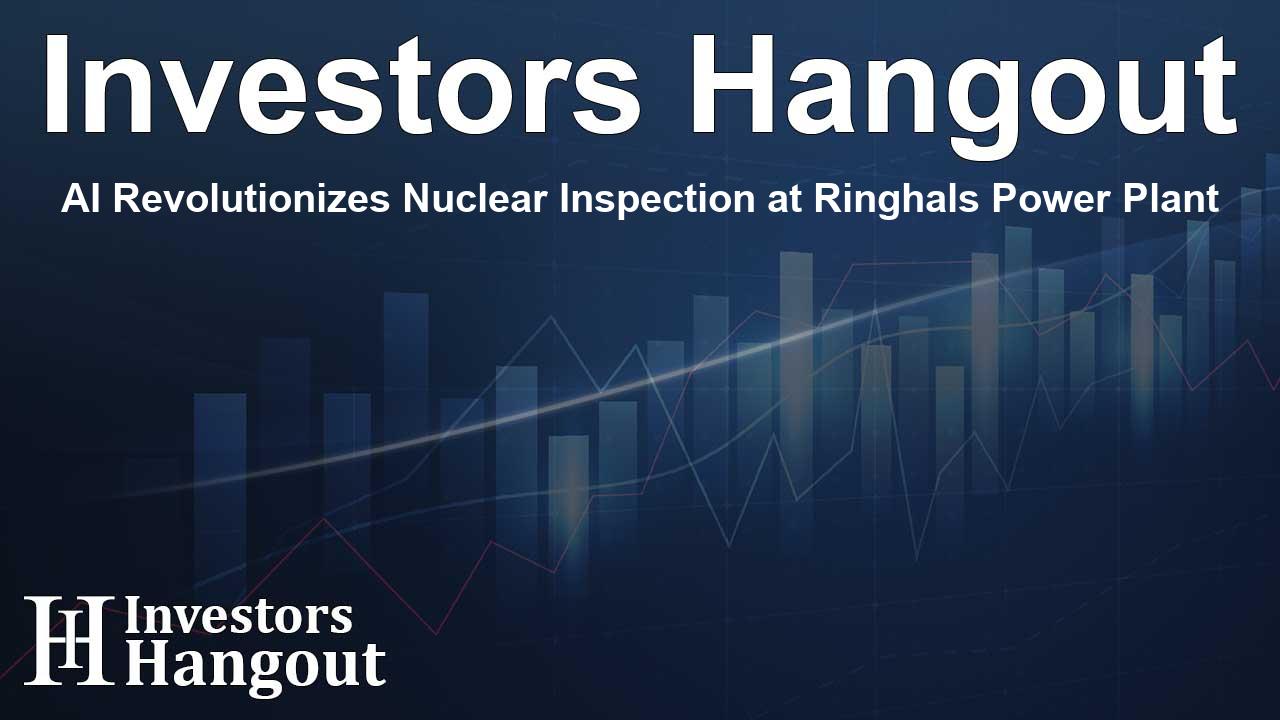AI Revolutionizes Nuclear Inspection at Ringhals Power Plant

AI Innovations in Nuclear Inspections at Ringhals
Artificial intelligence (AI) has made significant strides recently, especially in the field of non-destructive testing (NDT) within the nuclear industry. A remarkable development took place during an outage at the Ringhals power plant where AI and machine learning (ML) were utilized for the first time to evaluate data during ultrasonic inspections. This groundbreaking advancement positions AI not just as a technological enhancement but as a pivotal tool for ensuring safety in power generation.
The Role of AI in Ultrasonic Inspections
Ultrasonic testing is a critical process in the inspection of power plant components, particularly when it comes to identifying potential defects that could lead to significant failures. Traditional inspection methods, which rely heavily on skilled human experts, can be time-consuming and prone to human error. However, with the integration of AI, inspections can now be performed with enhanced speed and accuracy.
Efficiency Through Automation
With the new AI-powered system, data collected from ultrasonic tests is analyzed far more quickly than before. Human inspectors would typically spend hours sifting through the vast amounts of data generated during inspections. AI pre-screens the data and highlights areas of concern, allowing experts to focus their attention where it is most needed. This collaboration between AI and human operators not only speeds up the process but also enhances the reliability of the findings.
Enhancements in Safety and Compliance
This innovative method of inspection meets rigorous safety and regulatory standards, essential for the nuclear industry. The recent qualification granted for use in ultrasonic inspection of pressure vessel head penetrations shows that AI can perform within the stringent requirements of nuclear safety. This is a major milestone in the journey toward integrating advanced technologies into critical infrastructure.
Testament from Industry Leaders
Iikka Virkkunen, the CEO of Trueflaw, emphasized the importance of this development by stating, "AI/ML has proven itself as a reliable and valuable tool for non-destructive evaluation. The first use in qualified nuclear inspection is an important milestone and shows AI can meet the highest of reliability and regulatory requirements." Such endorsements from industry leaders highlight the transformative potential of these technologies.
The Future of Inspections with AI
This integration of AI into nuclear inspections is just the beginning. As technology continues to evolve, we can expect even more sophisticated applications that will further enhance inspection quality and safety. Companies like Trueflaw, which specializes in AI-driven defect detection and NDE reliability, are at the forefront of this technological evolution. Their experience, spanning over two decades, positions them uniquely as leaders in AI-based solutions for various industries.
Expanding the Horizon for AI Applications
The development and implementation of AI in ultrasonic inspections not only benefits the nuclear sector but also opens avenues for various other industries where safety and precision are paramount. As more companies recognize the capabilities of AI in improving structural integrity assessments, the landscape of quality control and maintenance in heavy industries is set to transform dramatically.
Frequently Asked Questions
What is AI's role in nuclear inspections?
AI facilitates faster and more accurate analysis of inspection data, helping human experts focus on key areas of concern.
How does AI improve the reliability of inspections?
By pre-screening data and reducing human error, AI ensures that findings are consistent and meet regulatory standards.
Who developed the AI system used at Ringhals?
The AI system was developed by Trueflaw, in collaboration with EPRI, and has recently been qualified for inspection purposes.
What are the benefits of using ultrasonic inspections?
Ultrasonic inspections help in detecting potential defects in critical components, ensuring safety and operational reliability.
Will AI replace human inspectors in the future?
While AI aids human inspectors, the final evaluation will always rely on their expertise, ensuring a collaborative approach to safety.
About The Author
Contact Henry Turner privately here. Or send an email with ATTN: Henry Turner as the subject to contact@investorshangout.com.
About Investors Hangout
Investors Hangout is a leading online stock forum for financial discussion and learning, offering a wide range of free tools and resources. It draws in traders of all levels, who exchange market knowledge, investigate trading tactics, and keep an eye on industry developments in real time. Featuring financial articles, stock message boards, quotes, charts, company profiles, and live news updates. Through cooperative learning and a wealth of informational resources, it helps users from novices creating their first portfolios to experts honing their techniques. Join Investors Hangout today: https://investorshangout.com/
The content of this article is based on factual, publicly available information and does not represent legal, financial, or investment advice. Investors Hangout does not offer financial advice, and the author is not a licensed financial advisor. Consult a qualified advisor before making any financial or investment decisions based on this article. This article should not be considered advice to purchase, sell, or hold any securities or other investments. If any of the material provided here is inaccurate, please contact us for corrections.
